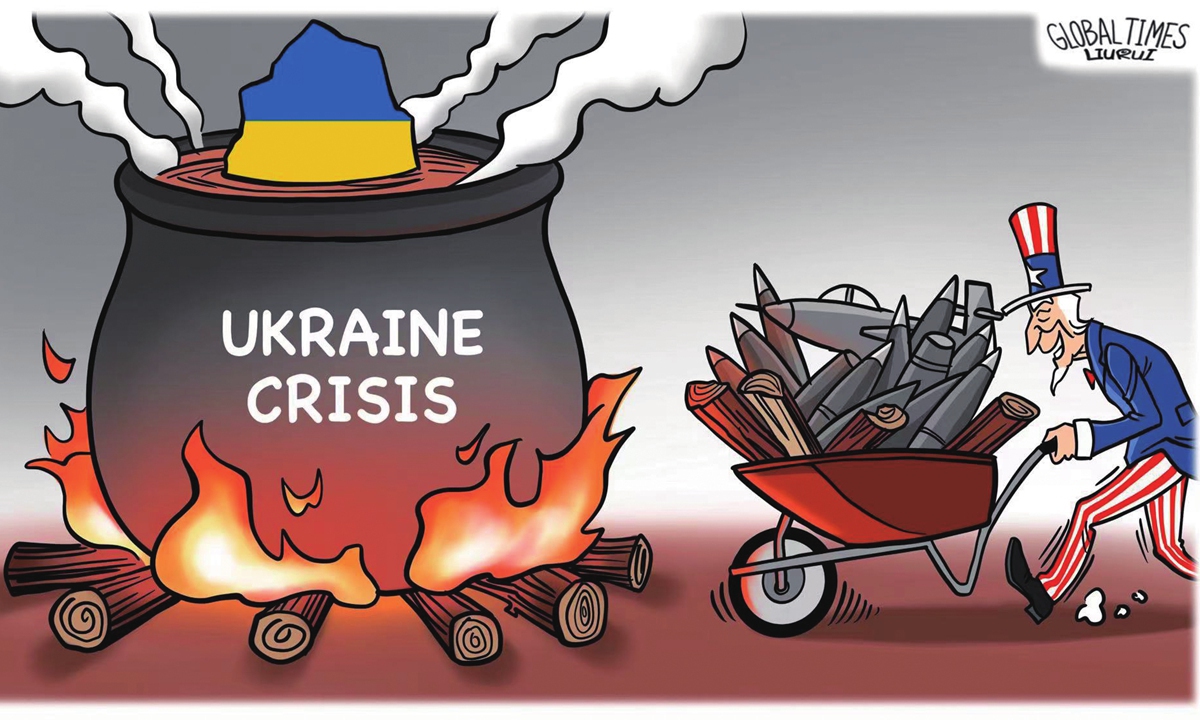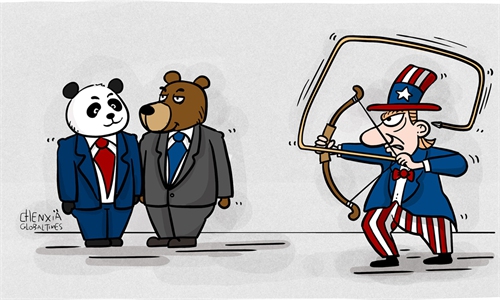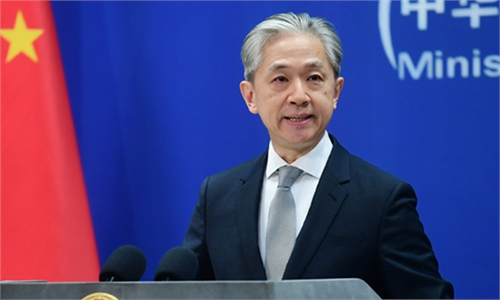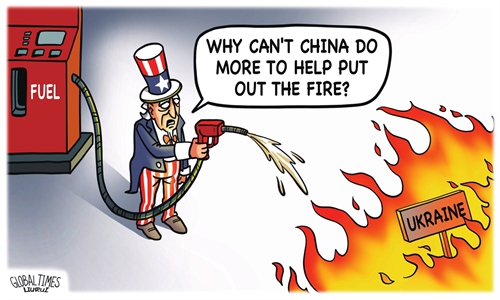
Illustration: Liu Rui/GT
Peace in Ukraine cannot come quickly, and now there is a new obstacle in its way. The US Congress and government have approved another package of military aid to Kiev, once again confirming their policy of throwing wood into the fire that has been destroying Ukraine for several years.
However, even this will not be enough for the West to win, as it could lead to a nuclear clash between Russia and NATO. This makes no political sense as it would result in almost universal annihilation. Therefore, any US/NATO aid to Kiev only strengthens the local radicals in their refusal to engage in peace talks, but it changes nothing on the line of armed confrontation. The US understands all of this, but is stubbornly unwilling to move toward a peaceful settlement, which includes the organization of the entire European security system.
In recent months, Ukrainian security services have attempted to strike deep into Russian territory. However, Russia's scale makes these efforts pointless. At the same time, Russian measures target military facilities while avoiding attacking civilian areas. Nevertheless, the economic and military losses of Ukraine are already unprecedented in Europe since the end of the World War II.
In the coming days, an exhibition will open in Moscow to showcase samples of military equipment from 12 NATO countries that were captured by Russian troops on the battlefield. Western media acknowledge that Russia has significantly increased its military production.
Russia must be doing this because the US has not yet allowed Kiev to enter into negotiations that would take into account the changes since February 2022. To some extent, this is related to US domestic interests.
Shortly before the November presidential elections, each of the likely candidates is competing to see how much benefit they can bring to the US economy. Therefore, most of the money allocated to Kiev will be used for long-term orders to American arms manufacturers. American representatives have long openly referred to aid to the Ukrainian government as a "good investment" in the US economy. Not so long ago, such cynical statements would have been hard to imagine. But now they are a sad reality.
Russia is well aware of these motives, which are related to the difficult situation of the American economy and society, as well as the lack of new solutions. It regrets that the West has chosen to prolong the conflict rather than engage in peaceful negotiations. It also takes into account the difficult situation of European countries on which Washington is trying to shift the main burden of confrontation with Russia. Europe has been hit the hardest by severing economic ties with Moscow compounded with pressure exerted by the US on European countries such as Germany, France and Italy to cooperate and engage in dialogue with China. It is becoming increasingly difficult for the US to maintain its global hegemony.
However, in seeking solutions, it is still unwilling to compromise. In the future, America will have to gradually reshape its entire way of thinking about world politics and accept a more equitable distribution of the benefits that global economic openness brings to all.
A meaningful discussion of the Chinese plan for a settlement in Ukraine could be a first step. This has the support of the Russian government, the Russian expert community and the wider international community. In his recent speech, the Russian foreign minister noted that the Chinese plan for settlement in Ukraine is the clearest and most concrete of similar initiatives that have been put forward. We must also agree with Sergei Lavrov's opinion that "the Chinese document is based on the analysis of the causes of what is happening and the need to eliminate these causes." In other words, its consideration at the highest international level can be a solution to the most important problems of European security.
The author is Moscow-based Valdai Club program director. opinion@globaltimes.com.cn



